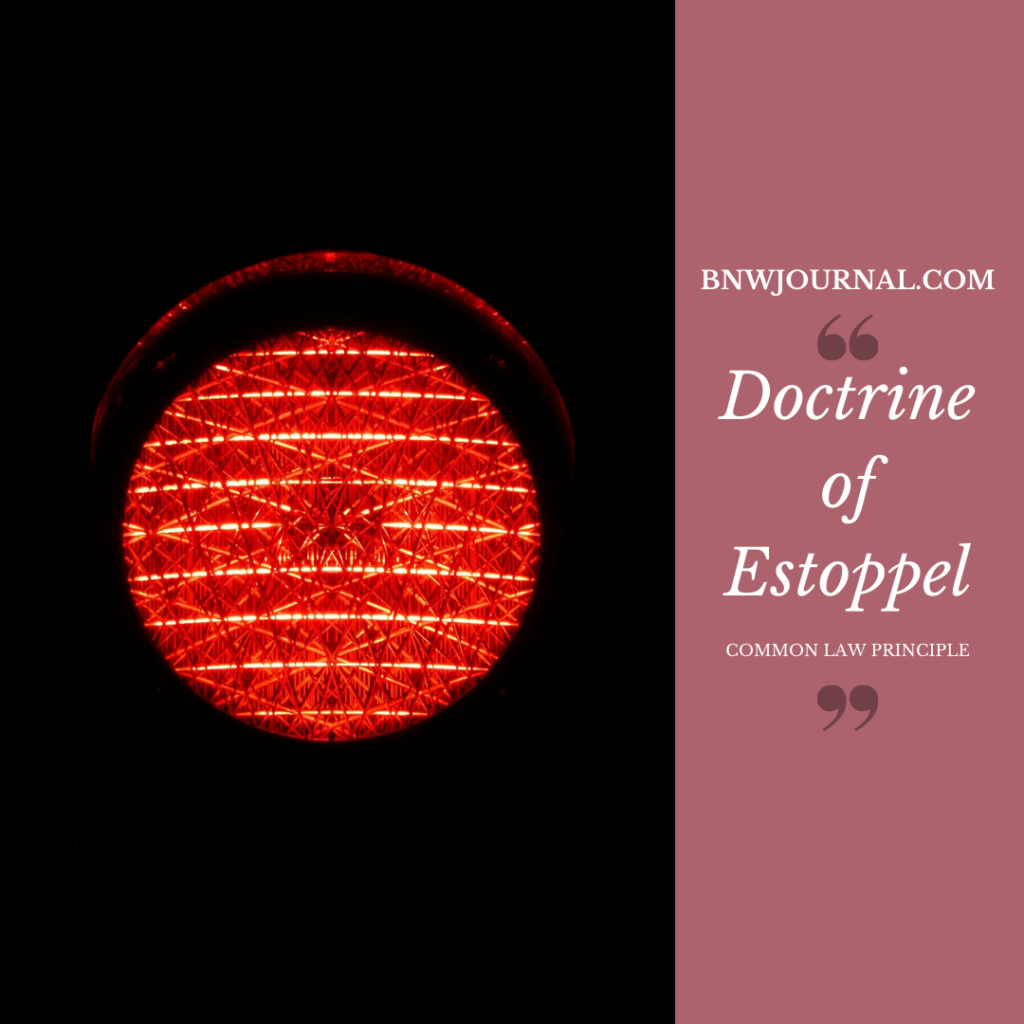![]()
Introduction
The standard of the tenet of Estoppel is expressed under Section 115 of the Indian Evidence Act, 1892. Estoppel depends on the rule that it would be uncalled for if an individual deliberately by the director in some other way has initiated other individuals to accept and follow up on such a portrayal, neither he or those speaking to can in resulting Court procedures deny reality. The denounced does through oversight, act, or announcement.

The term Estoppel is gotten from the maxim, “allegans contraria non-est audiendus”; which suggests an individual asserting conflicting realities ought not to be heard and is the types of assumption Juris et by law; wherein the reality assumed is taken to be valid against the gathering expressing the same. The rule of Estoppel was set up on account of Pickar v. Singes, wherein an individual by his words or leads incites to someone else to accept a reality and in this way demonstrations as per that conviction or to modify his past position, the denounced is banned from later changing his position. The regulation set up in this segment isn’t a standard of value rather the standard of proof, applied in the Court of law.
Illustration: An offered a house to B, A does as such by improperly causing B to accept that the house had a place with A. A consequently can’t take the safeguard that the title of the house can’t be given to B as the house didn’t have a place with A in any case. A will be at risk for the equivalent.
Principle of Estoppel
Estoppel relies upon the presence of some obligation. For a supplication of estoppels to succeed it is basic to demonstrate that there existed disregard attributable to some obligation. Estoppel is a standard of common activities; the main restricted application can happen in criminal issues. Because of B. L Shreedhar v. K.N Munireddy, the Supreme Court expressed that a tenet of estoppels is fit for making or overcoming rights.
Estoppel varies from the assumption, as estoppels is an individual exclusion laid upon an individual exceptionally circumstanced from demonstrating impossible to miss realities, while assumption decides is that specific surmising will be drawn from specific realities. It likewise contrasts from res judicata as estoppel depends on the rule of value, while res judicata depends on the rule that suit must conclude. Estoppel must be clear and unambiguous. Estoppels can’t dodge the law. The erroneous portrayal made by an individual probably been intended to be depended upon. There ought to be a proximate reason between the distortion and direct of the inquirer.
The individual guaranteeing profits by estoppels must have the option to set up that he was unconscious of the genuine condition of the matter. The law of Estoppel isn’t worried about the rationale or condition of information on the gathering upon whose portrayal activities occurred. On the off chance that the report is void abdominal muscle initio, estoppel can’t be forced upon the equivalent. Any future guarantees won’t make estoppels. Estoppel can’t be forced if substantiates realities are known to the two gatherings.



0 Comments